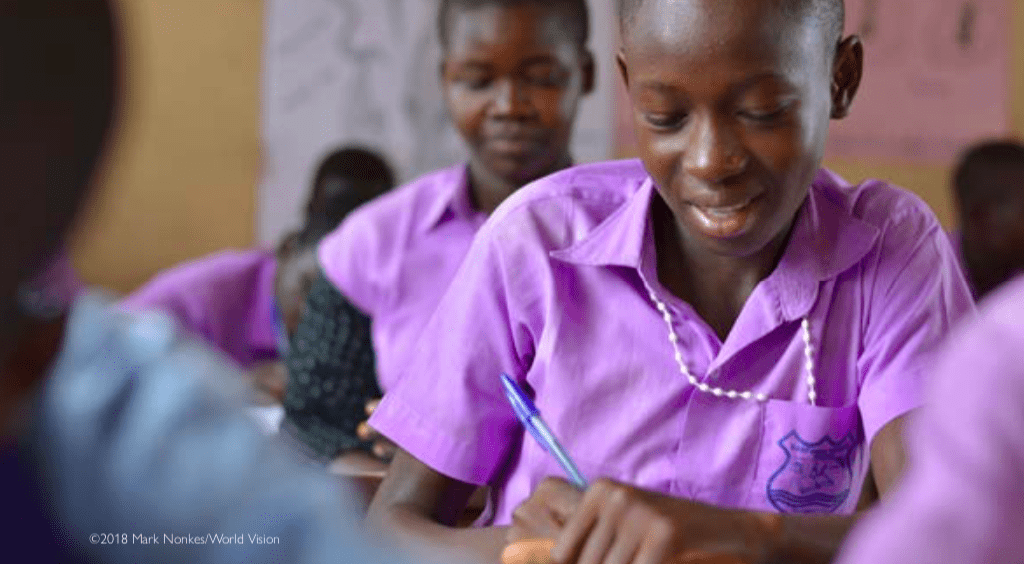
COVID-19 AND CHILD MARRIAGE: How COVID-19’s impact on hunger and education is forcing children into marriage
EXECUTIVE SUMMARY
Despite the global community’s pledge to end child marriage by 2030 under target 5.3 of the Sustainable Development Goals (SDG), progress remains slow. Even before the COVID-19 pandemic began, most experts estimated child marriage would continue for many more decades. Because the pandemic has increased poverty levels and hunger, and decreased access to education, the risk of girls becoming child brides is also increasing.
This report pairs data from World Vision’s Youth Healthy Behaviour Survey with global literature to better understand the conditions that enable child marriage and how these conditions may be changing because of the global pandemic. The report analyses 14,964 observations from children and youth aged 12-18 years from World Vision programming sites in Ethiopia, Ghana, India and Zimbabwe. Case studies also provide insights into the lives of girls within these communities.
Our analysis found a strong correlation in three areas adversely affected by the COVID-19 pandemic: HUNGER, ACCESS TO EDUCATION, AND PARENTAL SUPPORT.
The link between child marriage and hunger is clear. A child who experienced hunger in the four weeks prior to the survey is 60% more likely to be married than his or her peers who did not experience hunger. The already-strained global food system is challenged by the combination of poverty, climate change and conflict, all exacerbated by the pandemic. Although the analysis was unable to determine causation, this strong correlation between hunger and child marriage could be a sign of increased risk for girls.
Over the past 18 months, millions of adolescent girls were out of school for prolonged periods. The lack of access to online learning in the most impoverished communities created further gaps and inequalities throughout the world. Global literature establishes that most girls get married after they have stopped attending school, setting them on a trajectory toward reduced job opportunities, economic instability and a lack of independence. Our analysis found that children who are not in school are 3.4 times more likely to be married than their peers who are in school.
Finally, our analysis also showed an inverse relationship between parental support and the likelihood of child marriage. In particular, as caregiver support and encouragement increase, the likelihood of an adolescent being married significantly decreased. It has been widely reported that the impacts of the COVID-19 pandemic caused additional stress on parents, both mentally and financially, likely decreasing their ability to provide financial and emotional support to their children.
From this review and analysis, World Vision aims to bring attention to the new challenges the effects of the COVID-19 pandemic have created in the global effort to end child marriage. We believe that a world without all forms of violence against children—including child marriage—is possible, but it will take renewed focus, attention and strategy.
Our analysis has shown the ways in which hunger, access to education, poverty, parental support and general well-being are all linked to child marriage. Although not an exhaustive list of factors related to child marriage risk by any means, they indicate clearly why a cross-sectoral approach to ending child marriage is so necessary.
Donors and governments must act quickly and decisively to respond to the effects of the COVID-19 pandemic and other humanitarian crises. Significant gaps in laws, policies and programmes also remain, with dire consequences for children and communities. Unless we accelerate action, more than 110 million girls will become child brides by 20301 and progress made towards ending child marriage in the past 20 years will be lost.
1 UNICEF (2021) “COVID-19: A threat to progress against child marriage.”
Read the full report.
